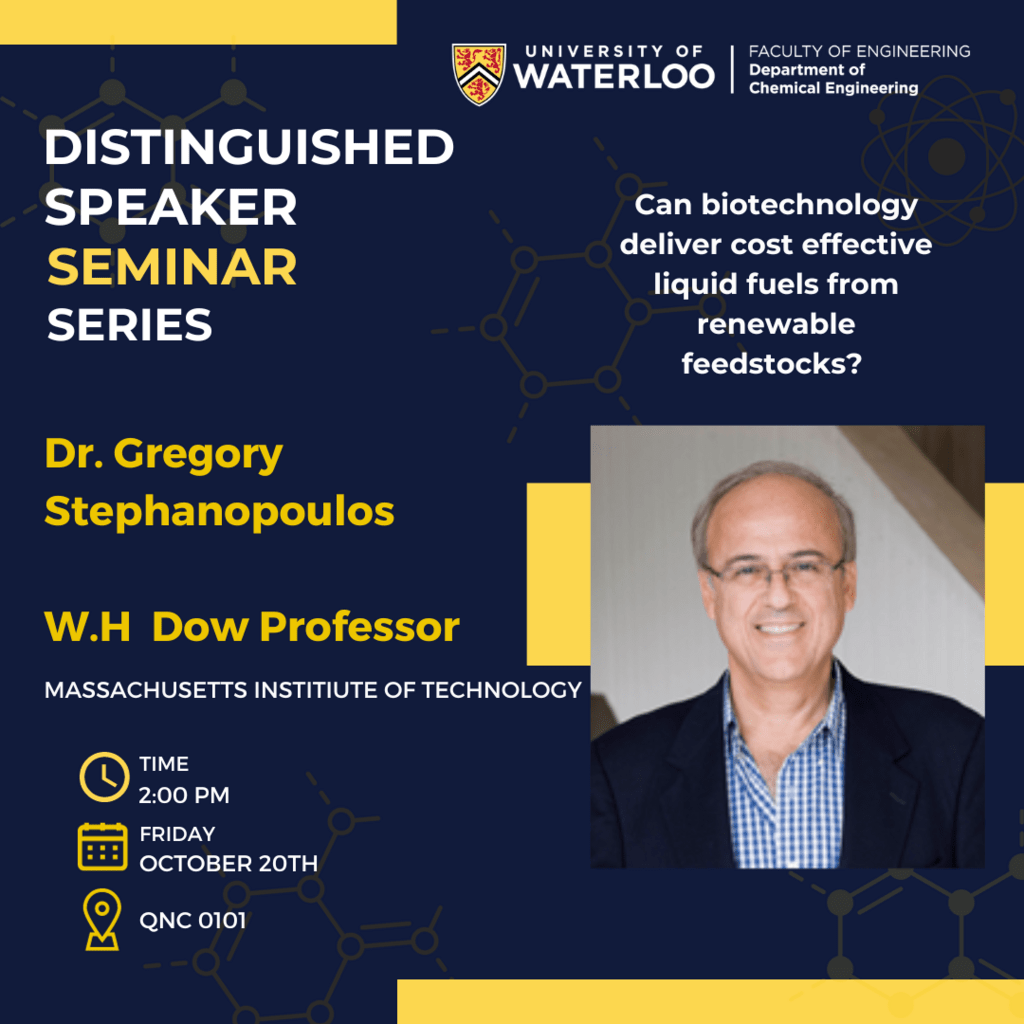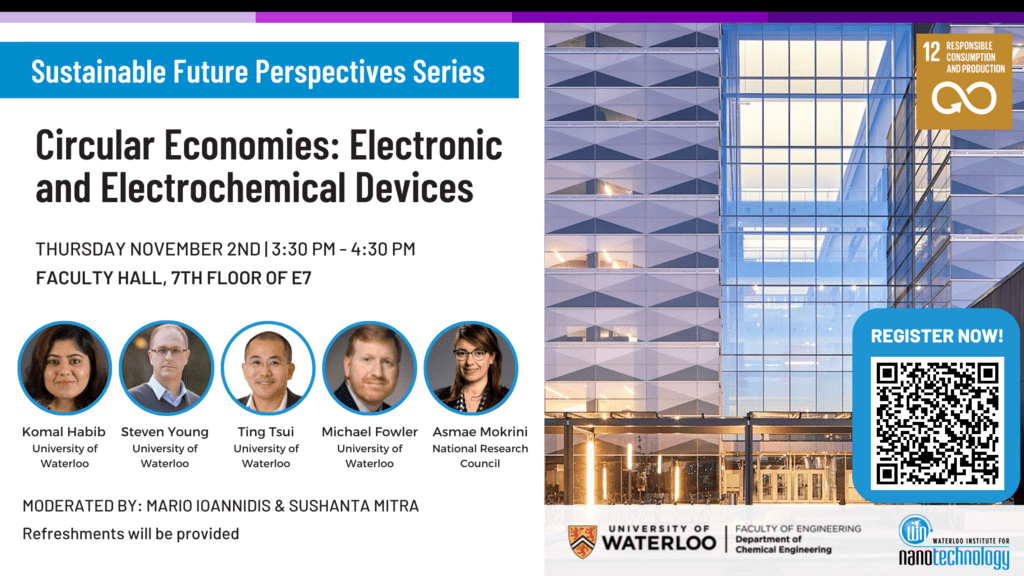Distinguished Speaker Seminar| Can biotechnology deliver cost effective liquid fuels from renewable feedstocks? by Professor Gregory Stephanopoulos
The importance of liquid fuels in transportation is well established, yet, there are presently no viable options for their cost-effective production from renewable feedstocks. During the past 15 years we have been developing in Dr. Stephanopoulos’ lab a system for the conversion of gas mixtures of hydrogen (or CO) and CO2 to oils or alkanes. The two-stage system comprises anaerobic fixation of CO2 and conversion of the CO2 fixation product (for example, acetate) to lipids, from which biodiesel can be produced. In another application, the CO2 fixation product is converted to alkanes. His work includes both the engineering of the microbes and development of a process to achieve gas-to-liquid conversion in prototype systems. These systems are scalable, make no use of land (beyond what is needed for generating renewable electricity for hydrogen production), do not compete with food and are cost-competitive based on high-level cost analysis. Dr. Stephanopoulos will present the essential features of this process.

